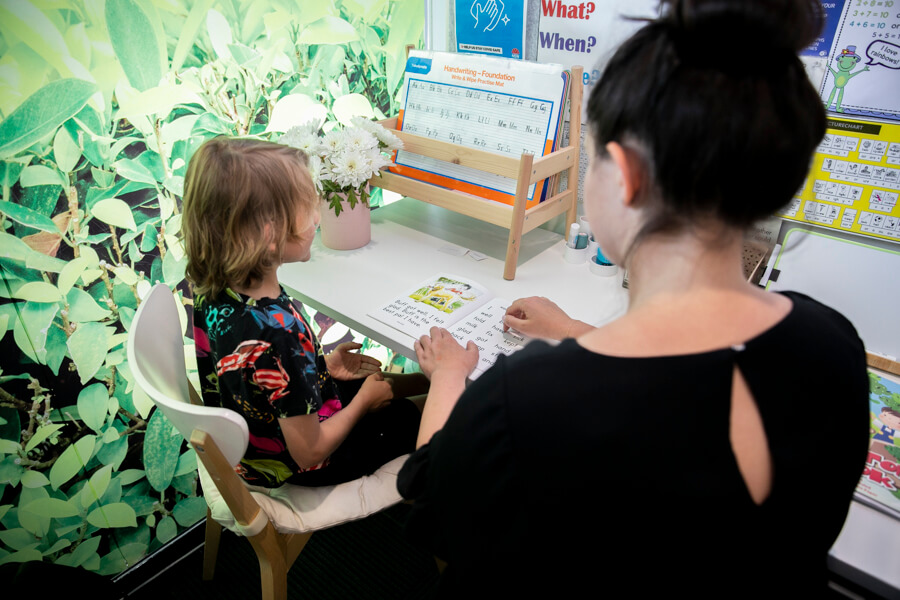
The Ultimate Guide to Kindergarten Tutoring: Helping Young Learners Thrive
Kindergarten marks the exciting start of your child’s educational journey. Yet, many parents naturally wonder if tutoring for kindergarten students is genuinely necessary at such an early stage.
After all, kindergarteners seem so young, carefree, and still adjusting to school life. It’s understandable to feel unsure about whether additional academic support is needed right now.
However, research shows clearly that children who build strong literacy and numeracy foundations from Kindergarten are significantly more likely to thrive throughout their schooling.
Early tutoring strengthens these foundational skills and builds confidence, resilience, and enthusiasm for learning. In this guide, you will see why tutoring at this crucial stage can make all the difference.
Why Do Kindergarteners Need Tutoring?
Many parents understandably question whether tutoring for kindergarten students is genuinely needed. After all, kindergarten seems playful and relaxed. Shouldn’t young learners simply enjoy exploring without formal tutoring?
Research and educational experience strongly suggest otherwise. At this age, the brain is exceptionally adaptable, meaning early intervention and proper support can dramatically affect a child’s capacity to learn.
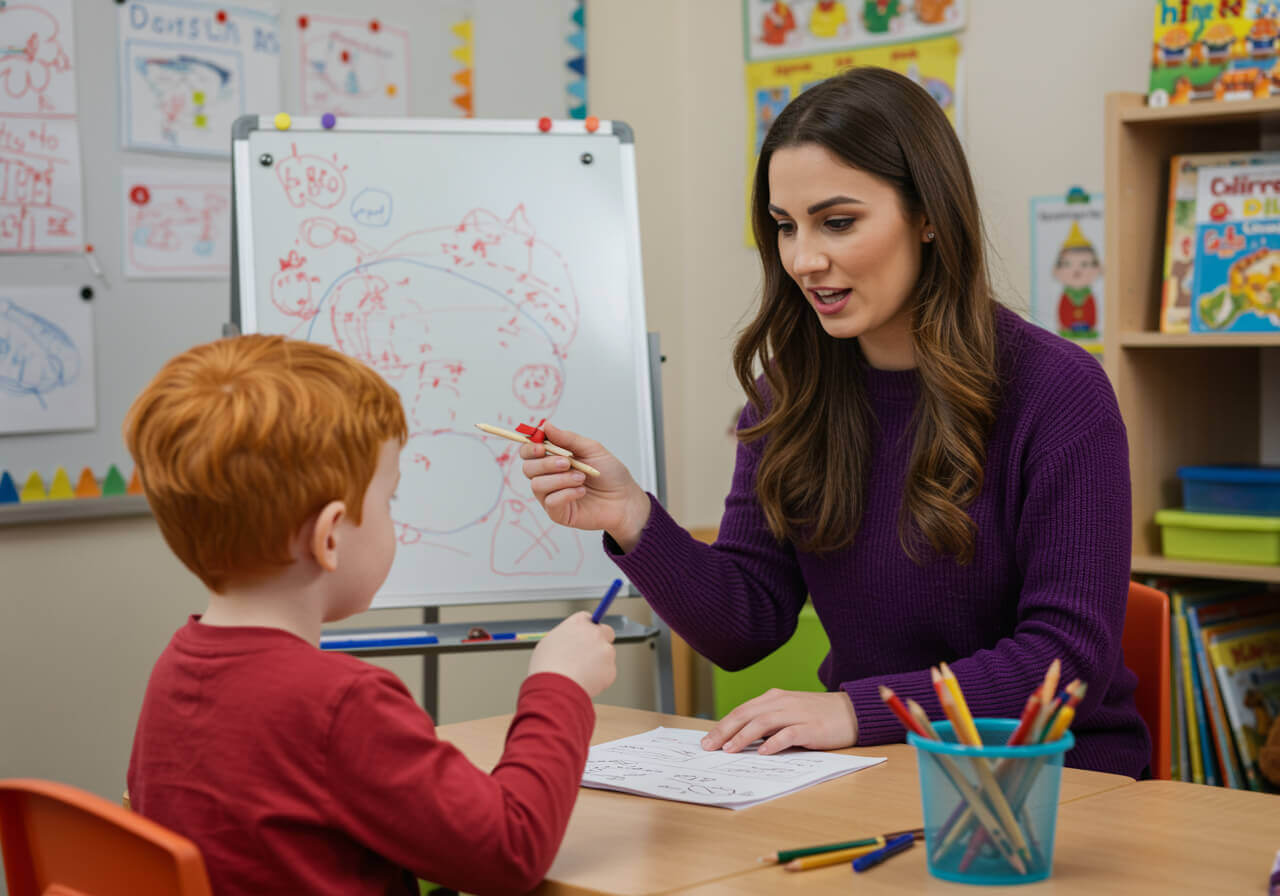
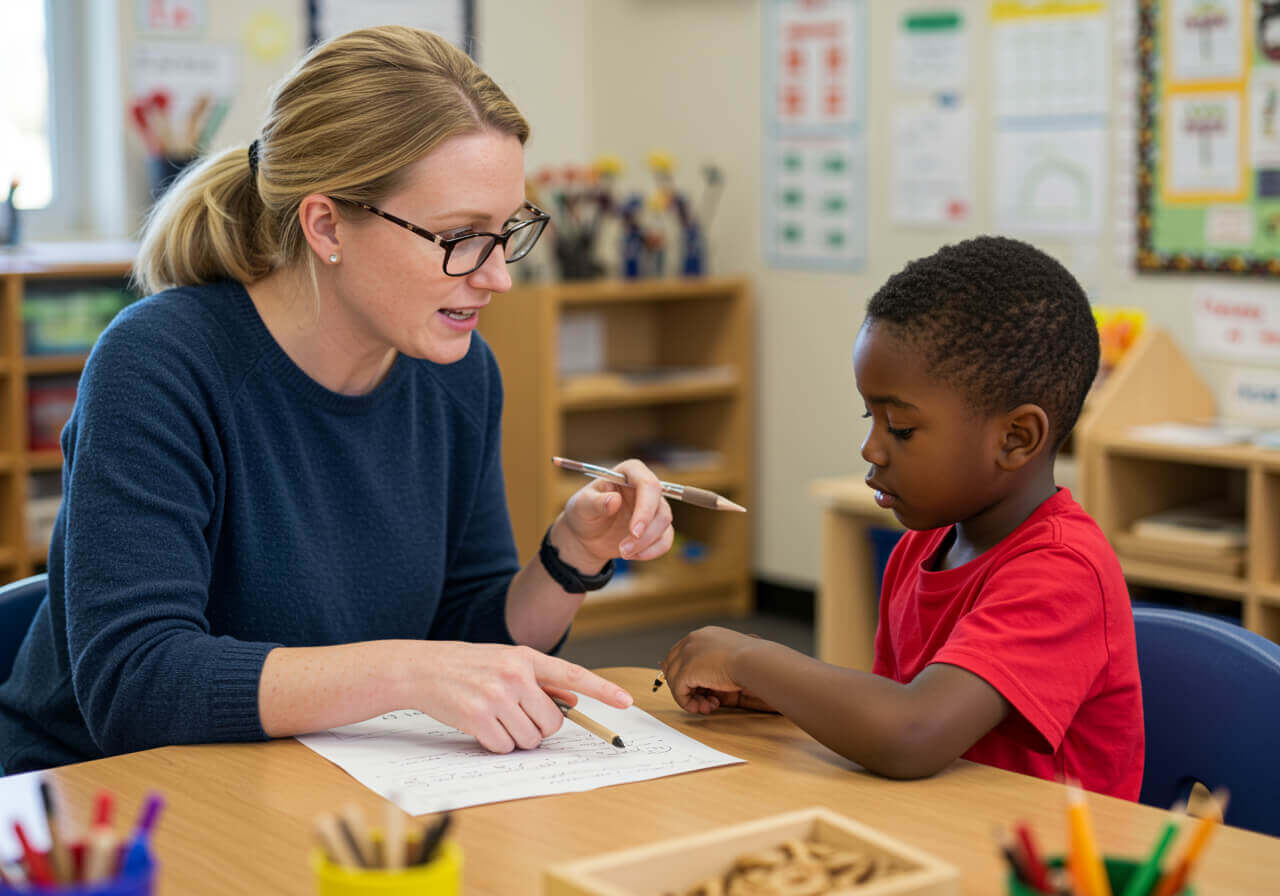
Evidence from Recent Studies
A recent study (2022–23) conducted by Stanford researchers highlights this impact clearly. Students from a large school district were given structured early literacy tutoring, resulting in measurable improvements compared to their peers who did not receive tutoring.
Those who participated consistently performed better on early literacy assessments, showing promising signs that early intervention, even in brief, focused sessions, can significantly boost literacy skills.
Real-Life Benefits Beyond Academics
But the benefits aren’t just academic. At Study Space, we’ve observed firsthand how early tutoring builds confidence, motivates young learners, and cultivates enthusiasm for learning.
For instance, a child initially struggling with letter recognition who receives personalised tutoring often quickly transforms from feeling anxious or hesitant into an enthusiastic reader eager to explore new books.
These foundational skills and positive learning experiences extend far beyond kindergarten and shape children’s attitudes toward education, confidently helping them face future challenges.
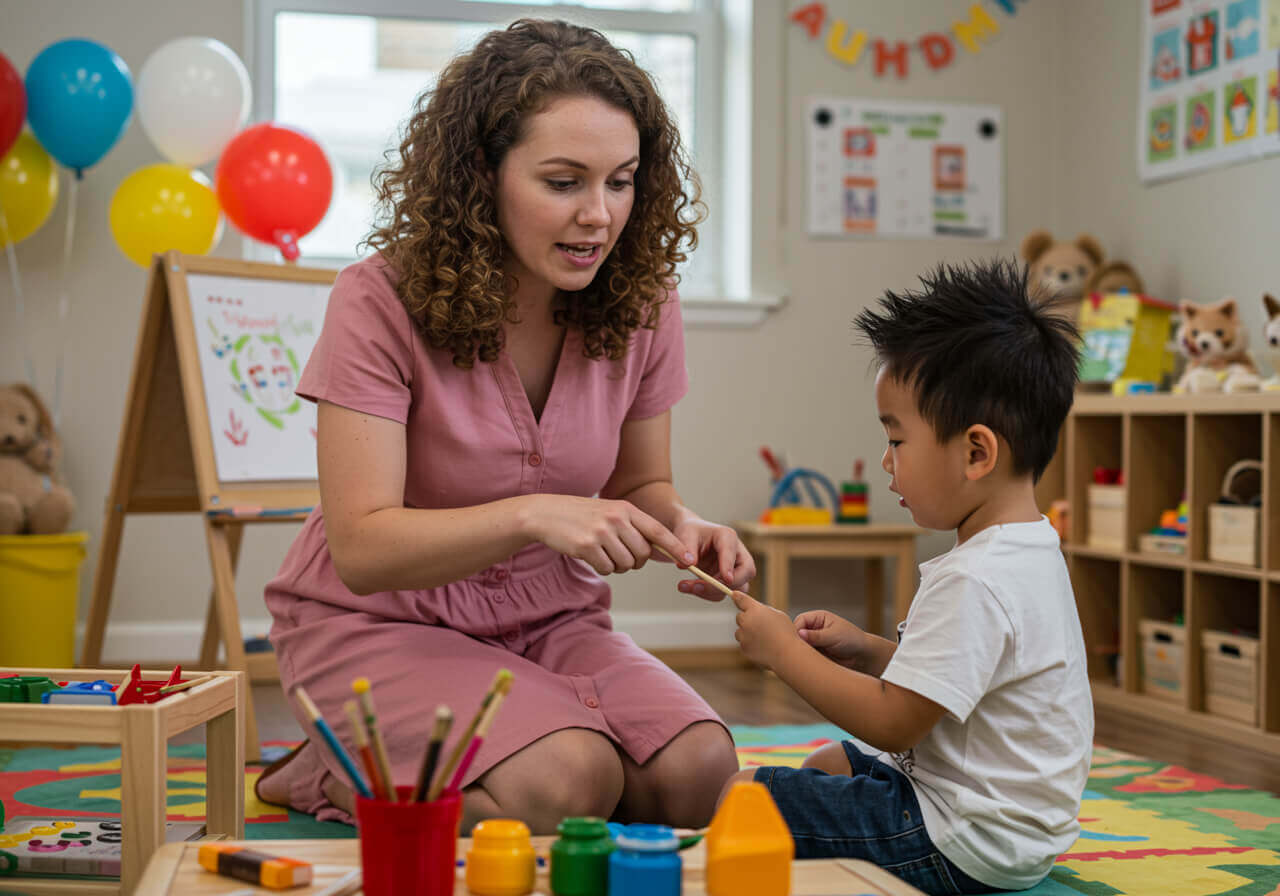
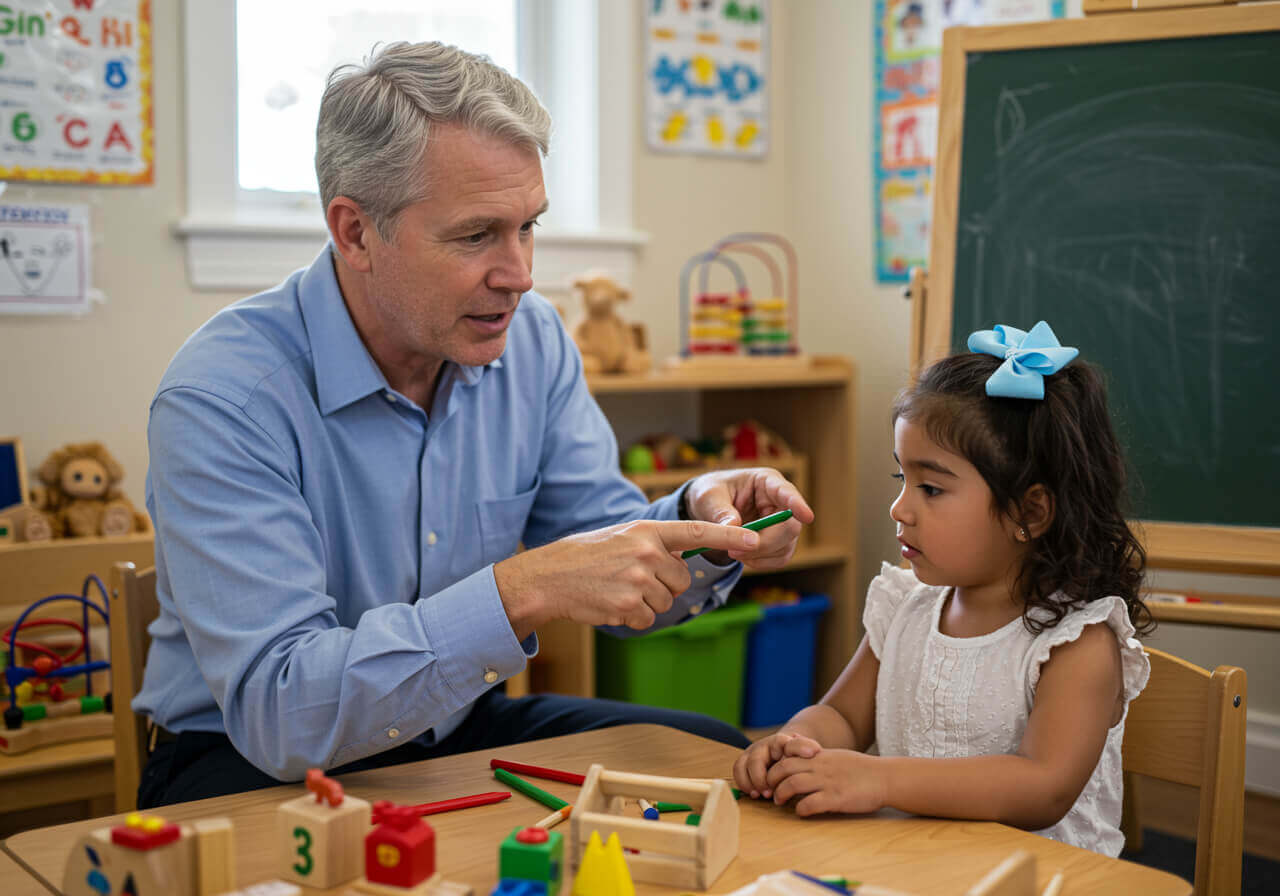
What to Tutor Kindergarten Students?
When considering tutoring for kindergarten students, parents often wonder what exactly young learners need to focus on. At this early stage, tutoring is about gently laying down essential foundations that prepare children for lifelong success.
Basic Literacy Skills
Kindergarten tutoring should emphasise phonics (the sounds letters make), letter recognition, and vocabulary building. With tailored, engaging activities like phonics games, storytime, and interactive reading, children quickly build the confidence needed to become enthusiastic readers.
Foundational Numeracy
Effective tutoring at this age includes counting exercises, number recognition, and playful introductions to basic addition and subtraction concepts.
At Study Space, our tutors use hands-on activities like number games, colourful puzzles, and interactive counting songs to make sure young learners form positive associations with maths from the very beginning.
Social and Emotional Skills
Essential skills such as listening, concentration, cooperation, and classroom readiness help children in academics and their interactions with teachers and peers.
At Study Space, we start with structured assessments designed to pinpoint precisely where each child excels and where extra support is needed.
From there, a personalised learning plan is created to address your child’s unique strengths and challenges. This makes sure that tutoring is engaging and specifically tailored to your child’s individual learning style.
How to Effectively Tutor a Kindergarten Student?
Every child is unique, with their own learning pace, strengths, and preferences. Recognising and nurturing these differences can significantly boost a child’s confidence and enthusiasm for learning.
At Study Space, we understand this deeply. That’s why our tutoring methods always start with an initial consultation and comprehensive assessments. This helps us clearly identify your child’s academic strengths, pinpoint any areas needing extra attention, and develop a personalised learning plan.
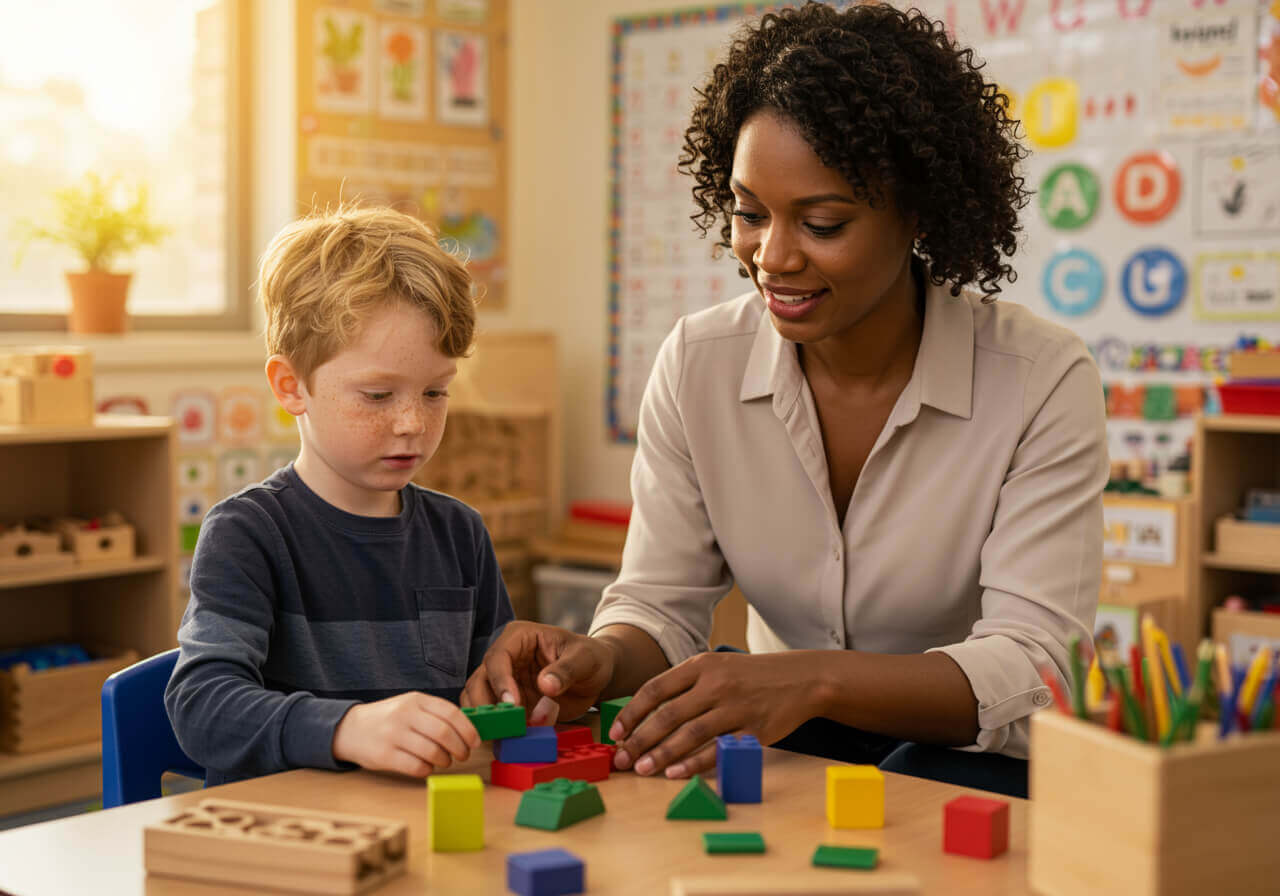
Once we understand your child’s individual profile, we carefully match them with a qualified teacher trained specifically in early childhood education. Our tutors have a deep understanding of the NSW curriculum and know how to adapt lessons to match your child’s abilities and interests.
We make sure sessions are short and enjoyable, matching young learners’ shorter attention spans. Interactive, multisensory activities, like games, songs, storytelling, and hands-on tasks, help children engage actively with the material, making learning memorable and exciting.
Practical strategies for effective kindergarten tutoring include:
- Keeping sessions brief yet consistent to maintain focus and maximise retention.
- Using plenty of visual aids, interactive games, and tactile activities to stimulate curiosity and involvement.
- Regularly employing positive reinforcement and encouragement to build self-confidence and motivate young learners.
With this thoughtful, structured approach, Study Space makes sure that each kindergarten student receives the attention, encouragement, and personalised guidance they need to develop strong foundations.
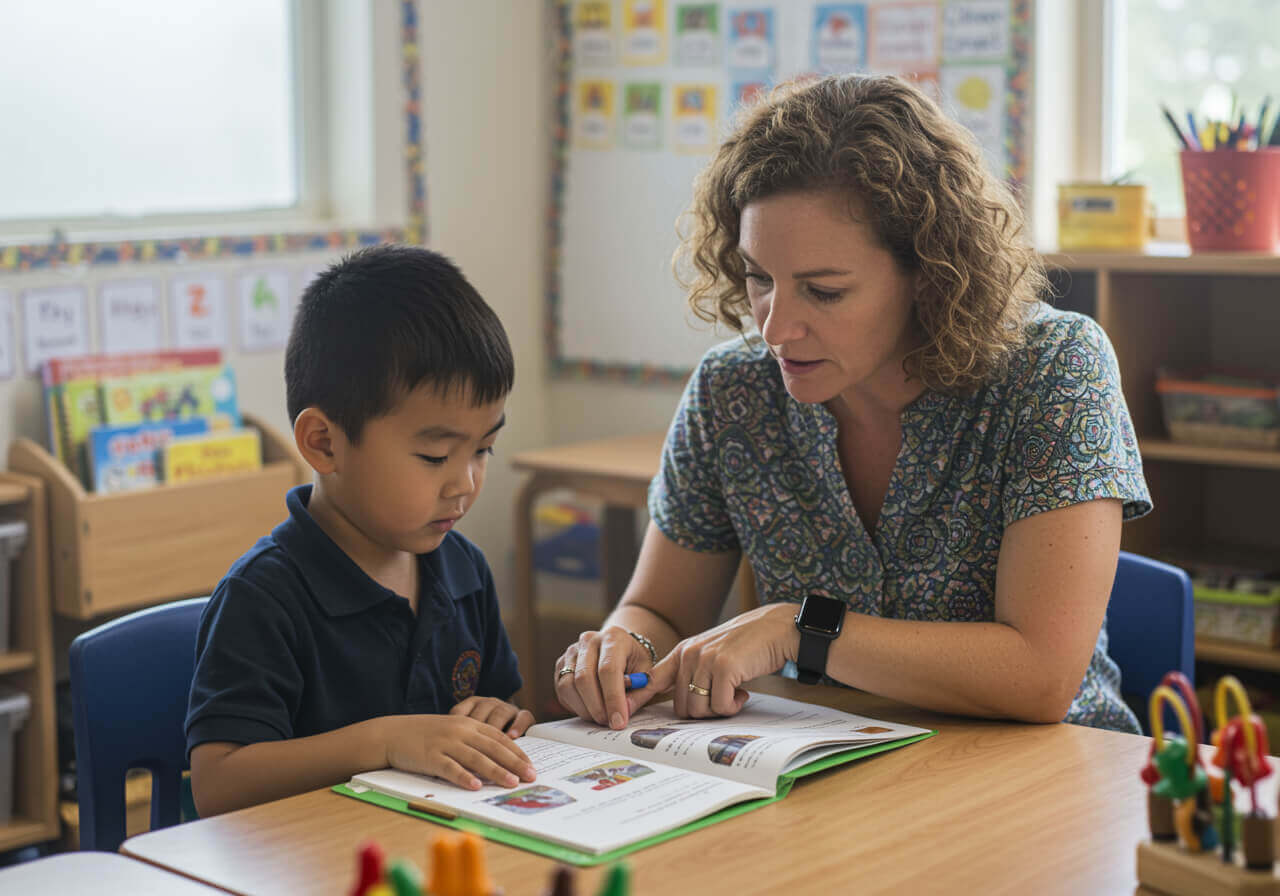
How to Tutor a Kindergarten Student in Reading?
Learning to read is a major milestone, and having a skilled reading tutor for kindergarten students can make this process enjoyable.
One effective strategy tutors at Study Space frequently use is interactive letter and sound recognition games. Young learners naturally love play. So, using colourful alphabet cards, matching games, or playful songs can significantly improve their ability to identify letters and connect them to sounds.
Interactive storytelling and shared reading exercises are also essential. Tutors can make reading time exciting by using expressive voices, asking engaging questions, and encouraging children to predict what might happen next.
This active participation builds comprehension skills and develops an early love for reading, turning storytime into a highlight of your child’s learning experience.
Phonics-based activities and vocabulary-building exercises further strengthen early reading skills.
Study Space tutors create personalised activities like rhyming games, simple word puzzles, or creative vocabulary-building tasks.
These engaging exercises help children decode words effectively and build a rich vocabulary, which is critical for reading fluency and comprehension.
Making Math Fun: Effective Tutoring Strategies for Kindergarteners
Making math engaging, playful, and stress-free is key, especially when providing Kindergarten Math tutoring. Early experiences shape a child’s attitude towards numbers. So, creating positive associations from the start can help them build confidence for learning math in the future.
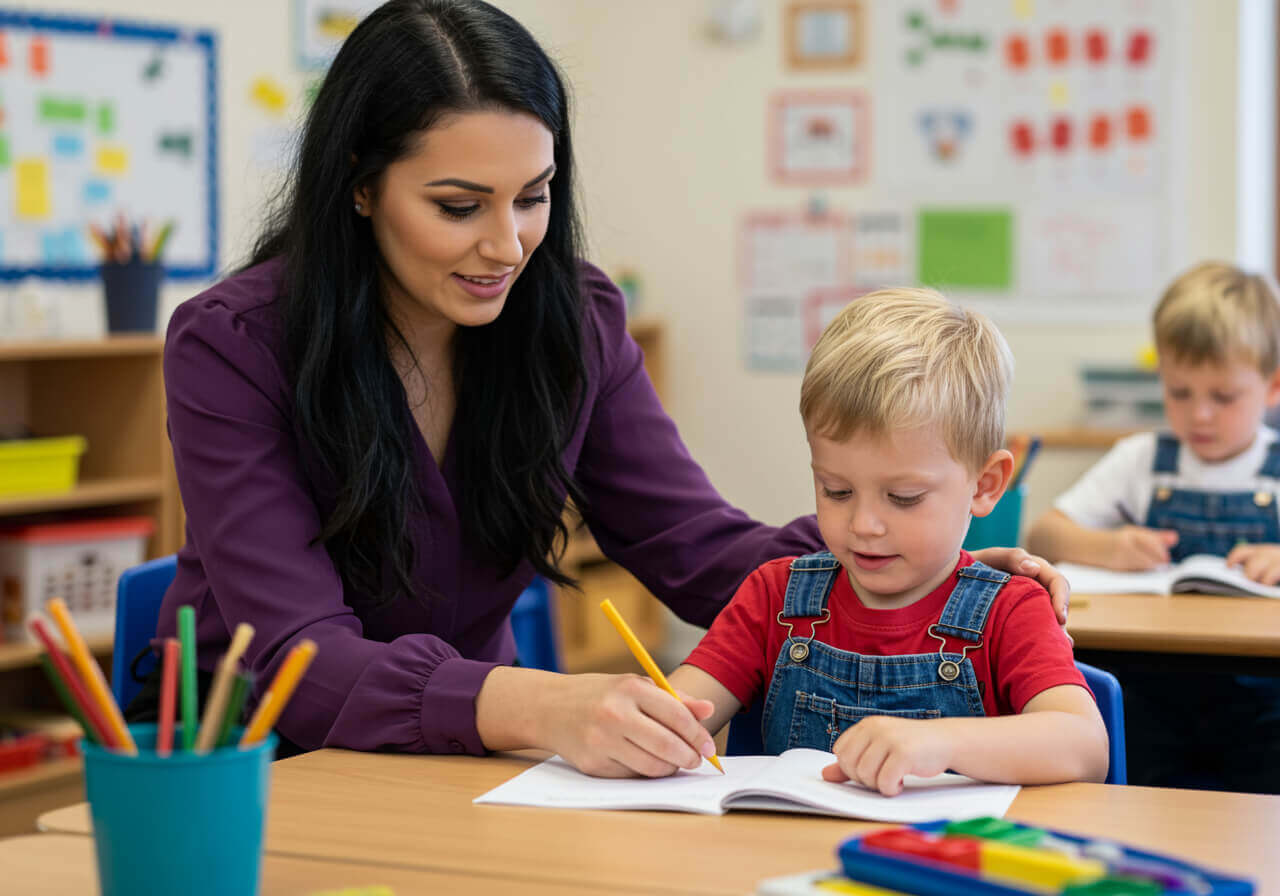
One of the best ways to achieve this is through interactive counting games, number puzzles, and hands-on manipulatives. At Study Space, our expert tutors use colourful blocks, counters, number boards, and engaging puzzles to help children naturally develop an understanding of numbers, patterns, and basic arithmetic.
Practical everyday math activities can further strengthen these foundational skills in a natural and enjoyable way.
Tutors might ask kindergarteners to count familiar objects around them, such as crayons, fruits, or toys. They can also encourage children to practice simple addition and subtraction during everyday play scenarios, like setting the table or sharing treats.
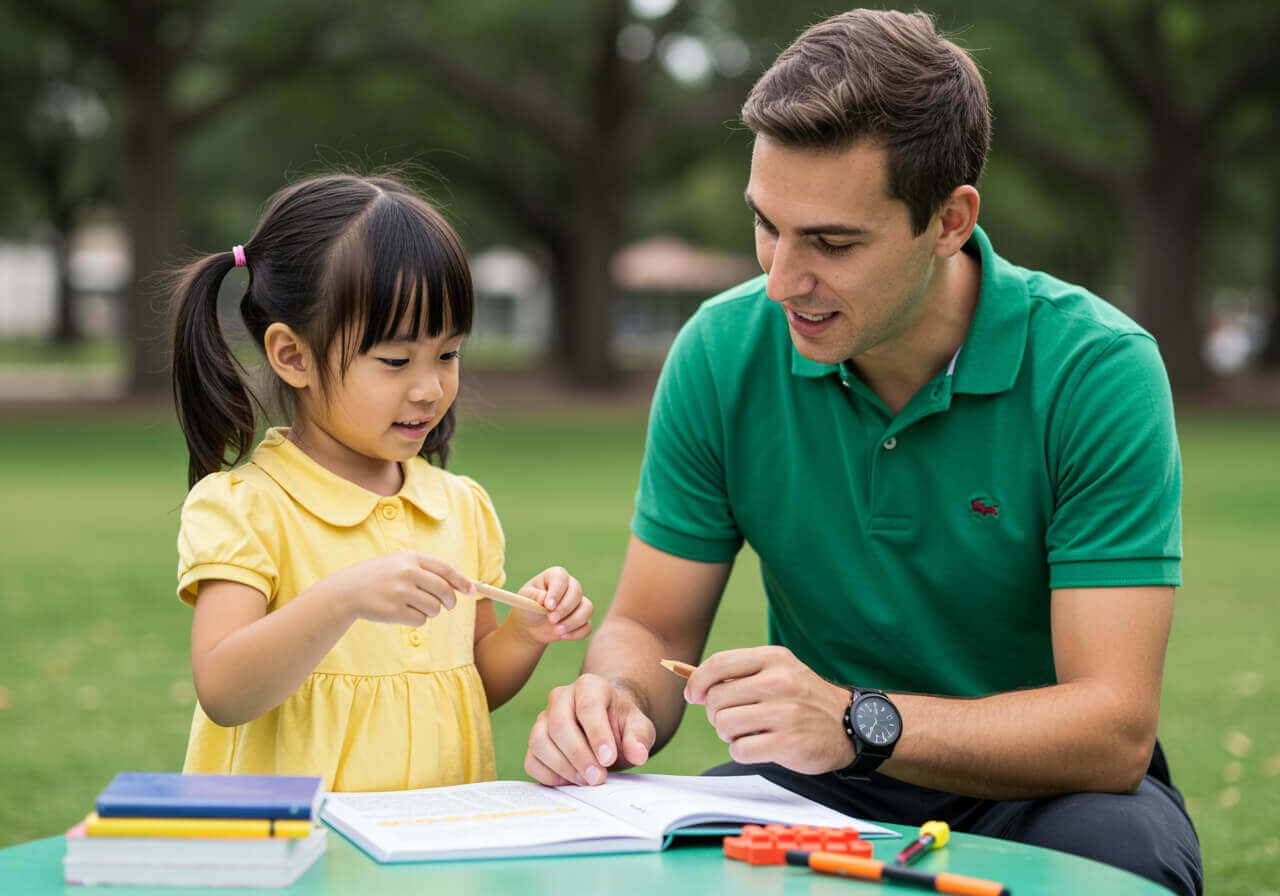
Tutoring Activities for Kindergarten
Engaging kindergarten tutoring activities are very important when providing effective tutoring for kindergarten students. At this young age, learning should feel exciting and playful, which captures children’s attention and promotes confidence.
1. Interactive Educational Games
Interactive educational games are an excellent starting point. Activities such as matching letters and numbers, sorting games, and simple puzzles actively involve kindergarteners, encouraging them to learn foundational skills naturally.
For instance, matching alphabet flashcards or counting colourful shapes helps reinforce recognition and retention in an enjoyable way.
2. Creative Arts and Crafts
Creative arts and crafts activities also integrate literacy and numeracy seamlessly. Alphabet collages, number drawings, or personalised counting books offer children hands-on experiences that combine creativity with learning.
These tasks strengthen essential skills while sparking imagination and enthusiasm.
3. Songs, Rhymes, and Movement
Rhyming songs and rhythmic counting chants help kindergarten students memorise concepts effortlessly, while movements like jumping to numbers or dancing to phonics songs promote active participation, motor skills, and deeper learning retention.
An Example of Kindergarten Tutoring Lesson Plan
At Study Space, our experienced educators design sessions that clearly align with the NSW syllabus, ensuring foundational literacy, numeracy, and social-emotional skills are developed with confidence and ease.
Here’s an easy-to-follow example of a kindergarten tutoring lesson plan structure:
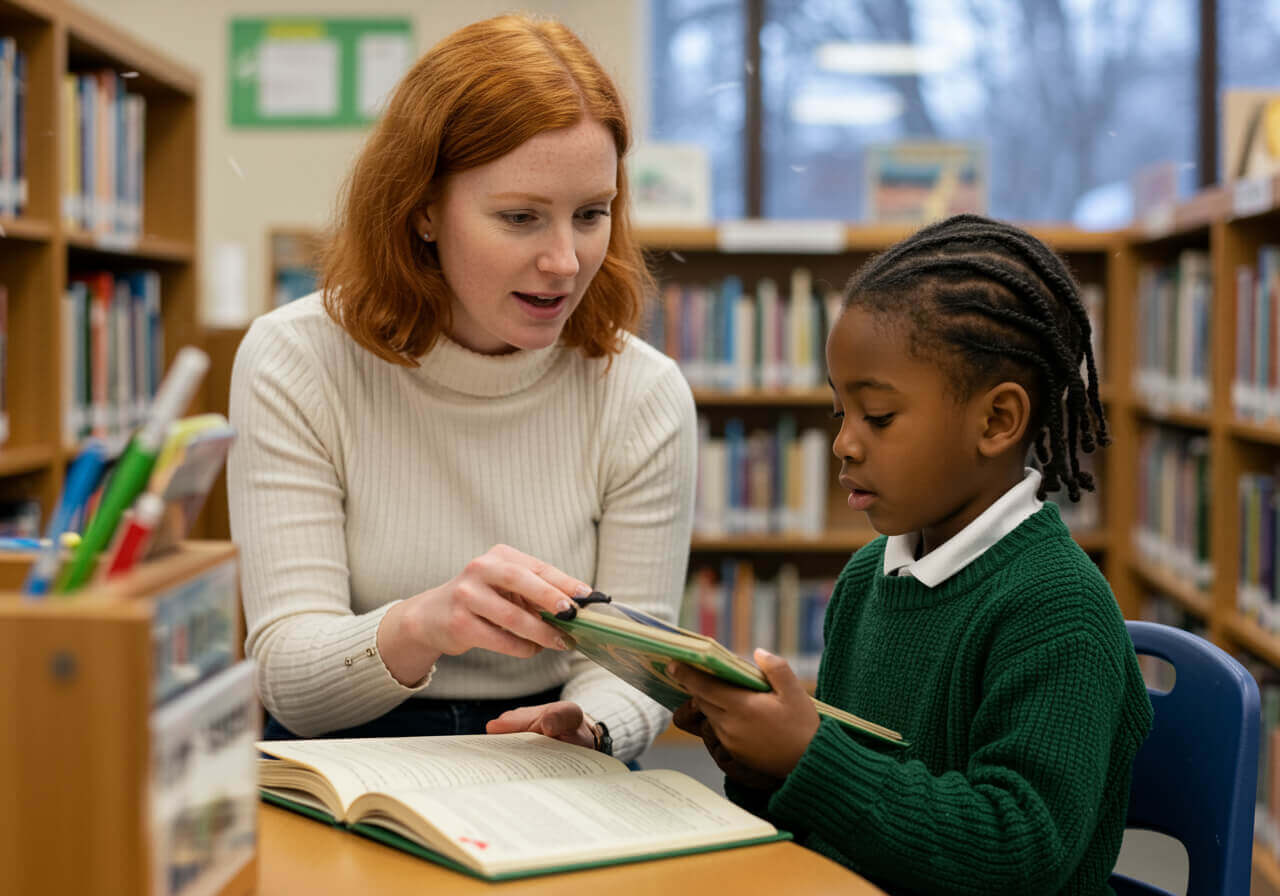
1. Clear Learning Objectives
A successful session begins with clearly defined goals aligned to NSW curriculum outcomes. For instance, “students will recognise and name letters A–E” or “students will confidently count to 10.”
2. Introduction (5 minutes)
Start with a welcoming, engaging activity like a brief song or story. This captures attention, builds excitement, and clearly introduces the session’s learning focus.
3. Guided Activity (10 minutes)
The tutor demonstrates the day’s key skill. For example, using flashcards to teach letter recognition or counting objects together to introduce numbers. Interactive guidance helps students understand and confidently participate.
4. Independent Practice (10 minutes)
Next, students try the activity themselves with gentle support. They might practise writing letters or counting toys independently. This reinforces the learning objective while encouraging self-confidence.
5. Review (5 minutes)
Tutors gently recap key points, checking each child’s understanding through simple questions or quick, playful quizzes.
6. Wrap-Up (5 minutes)
End with positive reinforcement, praise, and encouragement, perhaps concluding with a fun, related activity or game to maintain enthusiasm and motivation.
At Study Space, our professional educators continuously assess and adjust lesson plans to precisely fit each child’s individual pace and learning style. This tailored, structured-yet-flexible approach makes sure every session remains engaging, effective, and supportive for your child’s academic success.
Early tutoring for kindergarten students can make a big difference in your child’s learning journey. Building strong literacy, numeracy, and confidence at this young age sets children up for future school success and a lifelong love of learning.
Want to see how Study Space can help your child? Try our free introductory tutoring session today and experience our friendly, personalised approach firsthand. Let our tutors help your child thrive!
